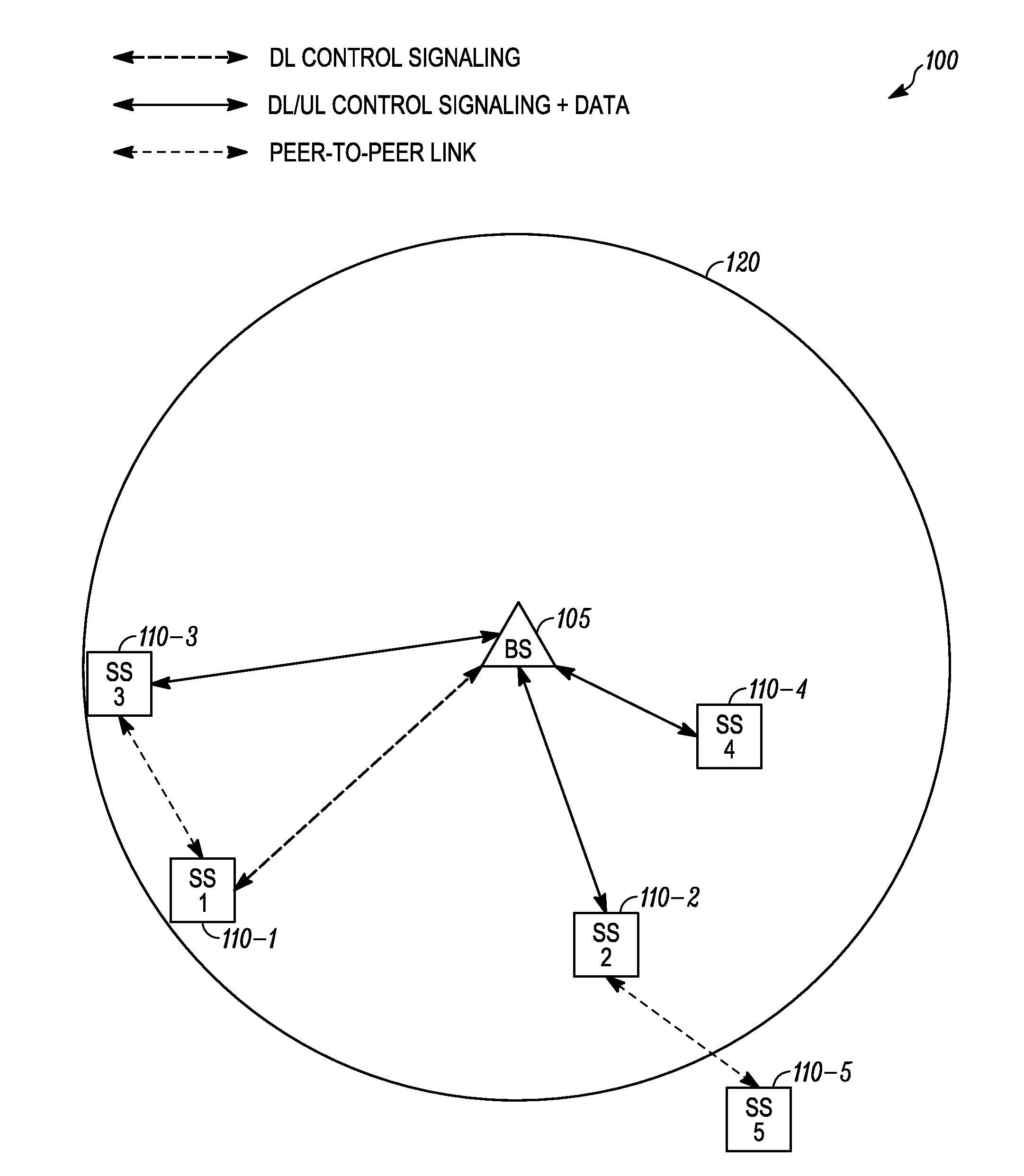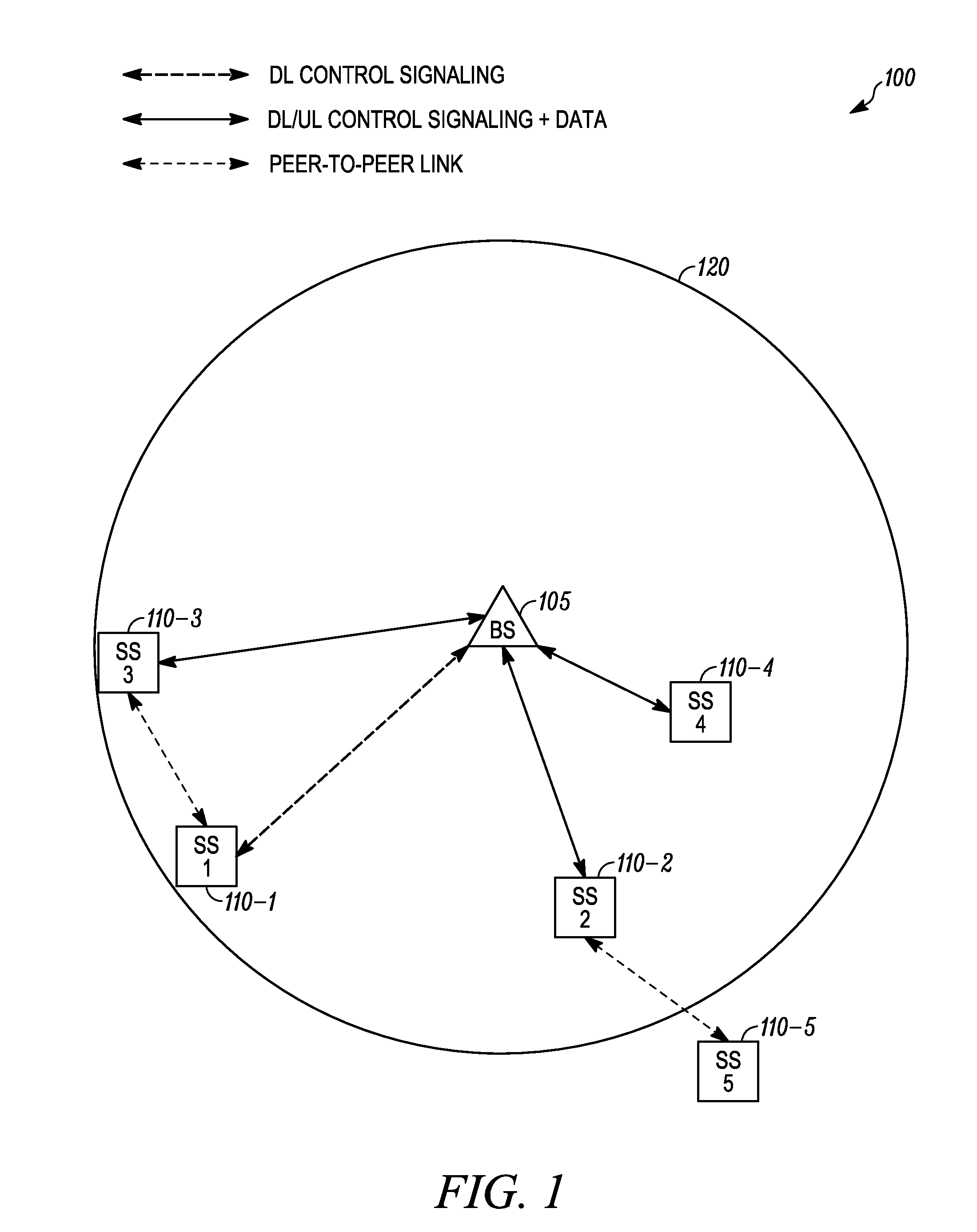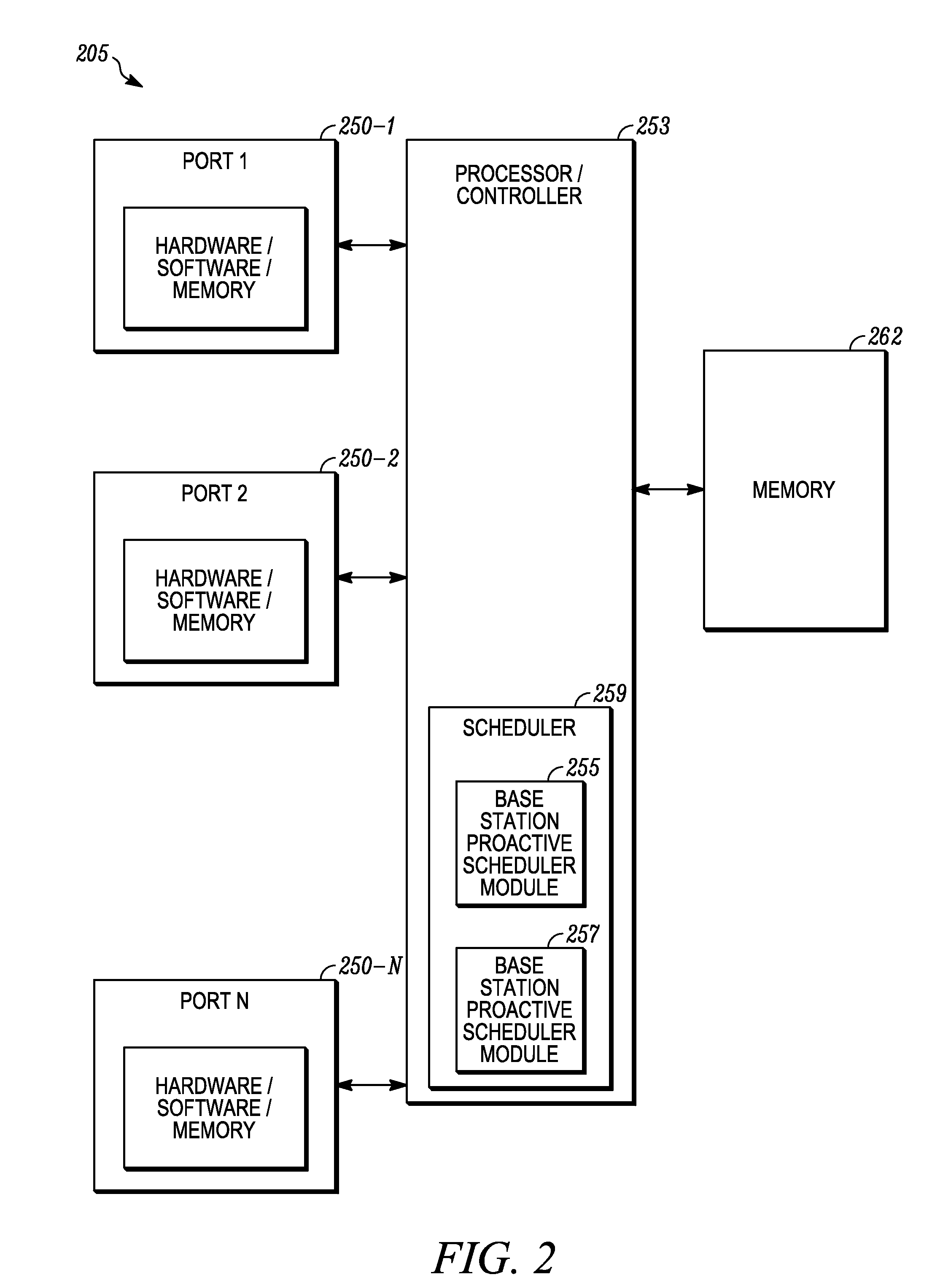Reactive scheduling methods and apparatus to enable peer-to-peer communication links in a wireless ofdma system
a wireless ofdma and peer-to-peer communication technology, applied in the field of reactive scheduling methods and apparatus, can solve the problems of high transmit energy, receivers can not detect the low-power signal, receivers can not perceive the low-power signal,
- Summary
- Abstract
- Description
- Claims
- Application Information
AI Technical Summary
Benefits of technology
Problems solved by technology
Method used
Image
Examples
Embodiment Construction
[0029]Although existing TDMA scheduling techniques work well in situations where all stations communicate with and are assigned or scheduled resources by a central base station, these techniques do not work in mixed networks that also include direct station-to-station or “peer-to-peer” communication between stations. With peer-to-peer communication, there is no concept of uplink and downlink since communications between the stations are direct and do not implicate a base station. OFDMA communication systems allowing peer-to-peer and mesh ad-hoc traffic will experience significant near-far issues if conventional TDMA uplink / downlink scheduling is used. As such, with OFDMA communication systems such as these, it would be desirable to add capability for scheduled peer-to-peer and mesh hopping communication links. Accordingly, it would be desirable to provide new schedulers and scheduling techniques for use in future OFDMA systems that allow for peer-to-peer communication.
[0030]In one e...
PUM
 Login to View More
Login to View More Abstract
Description
Claims
Application Information
 Login to View More
Login to View More - R&D
- Intellectual Property
- Life Sciences
- Materials
- Tech Scout
- Unparalleled Data Quality
- Higher Quality Content
- 60% Fewer Hallucinations
Browse by: Latest US Patents, China's latest patents, Technical Efficacy Thesaurus, Application Domain, Technology Topic, Popular Technical Reports.
© 2025 PatSnap. All rights reserved.Legal|Privacy policy|Modern Slavery Act Transparency Statement|Sitemap|About US| Contact US: help@patsnap.com



